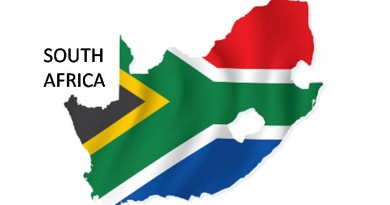Brazil and France ranked as the most complex places for doing business
TMF Group, a leading provider of compliance and administrative services, has today launched the ninth edition of its Global Business Complexity Index (GBCI)
The comprehensive report analyses 77 jurisdictions, locations which account for 92% of the world’s total GDP and 95% of net global FDI flows. It compares 292 annually tracked indicators, offering data on key aspects of doing business, including rules, regulations, tax rates, incorporation timelines, payroll and benefits, penalties and other compliance factors.
France retains it’s 2021 position as the second most complex jurisdiction for setting up and running a business globally. It is followed by Greece (6th vs 13th in 2021), Turkey (7th vs 5th), Italy (8th vs 15th) and Poland, which stays in tenth position.
Over the past 12 months, complexity in these countries has increased because of the measures central governments took to help businesses during Covid-19. This created some additional level of complexity: in Greece, for instance, the decision to digitalise has transferred bureaucratic hurdles to the digital sphere, rather than easing the processes. Italy, meanwhile, took a very protective approach towards workers: it was not possible to dismiss employees either at private or state level during the pandemic.
At the other end of the spectrum, there are five other European countries characterised by a very low degree of complexity: United Kingdom, Norway, Jersey, and Denmark. These jurisdictions can count on business-friendly political environments, highly skilled workforces used to working for international organisations and with a high degree of digital literacy. The digitalisation process played a pivotal role for Jersey, ranked as the 45th most complex country in 2021 and now 72nd. Thanks to an increased focus on improving digital channels, it’s now easier to contact the relevant regulatory bodies and government organisations and businesses can incorporate in as little as two hours.
TMF Group Head of EMEA Frank Welman said: “Our Global Business Complexity Index shows how operating across some European countries can be challenging. Some jurisdictions with huge investment potential have reacted to Covid-19 by adopting a higher degree of flexibility to help businesses navigating during uncertain times. The same countries, where the digital infrastructure was already in place, were able to push the process even further to overcome the difficulties. Other countries adopted a less relaxed approach, and this explains their positions at the top of the complexity’s hierarchy. In the future, we hope to see more countries investing in digitalisation and engineering processes to ease the burden for business and to encourage the flow of investment”.
In addition to analysing 77 locations, the report identifies key themes shaping the global business landscape and regulatory environment.
Emerging from Covid-19
The study reveals that some of the measures put in place such as tax exemptions, increasing employee rights and the acceleration of digital reporting are in the process of being reversed to pre-pandemic status.
Property tax payments on business premises reduced in frequency during the peak of the crisis. However, in 2022, 14% of jurisdictions require some or all companies to pay the tax at least every three months, compared to 9% of jurisdictions in 2021
On the HR (human resources) and payroll side, the trend for remote working has increased, to the point where it’s legal or standard in most industries in 31% of jurisdictions, compared to 10% of 2020.
Compliance and the flow of FDI
The report highlights a simultaneous growth in both complexity and the flow of FDI. Experts in a larger percentage of jurisdictions (34% in 2022 vs 28% in 2021) are predicting an increase in FDI over the next five years, reflecting post-pandemic optimism at investment opportunities.
Technology continues to play a role in both increasing and curtailing complexity. Digital literacy is an important factor, with 16% of jurisdictions automatically notifying all the relevant authorities following incorporation.
ESG on the rise
ESG is becoming more of a focus for business globally. However, despite the increase in interest, legal enforcement of ESG practices is only in place for around 50% of the jurisdictions. This is especially the case outside the EU, demonstrating a lack of international alignment. The impact of ESG is therefore difficult to measure.
ESG is on the rise globally, with jurisdictions such as France leading the way for many years. However, many governments are at an early stage of their engagement by starting to look at adopting environmental initiatives and guidelines.
Top and bottom ten (1= most complex, 77= least complex)
- 1 Brazil
- 2 France
- 3 Peru
- 4 Mexico
- 5 Colombia
- 6 Greece
- 7 Turkey
- 8 Italy
- 9 Bolivia
- 10 Poland
- 68 United Kingdom
- 69 Norway
- 70 New Zealand
- 71 United States
- 72 Jersey
- 73 British Virgin Islands
- 74 Hong Kong
- 75 Denmark
- 76 Curaçao
- 77 Cayman Islands
Complex but attractive
Mark Weil, chief executive of TMF Group, tells fDi that “Brazil suffers from rules at local, state and federal level, in part reflecting its size versus smaller jurisdictions”.
“We’re not [saying] don’t invest in Brazil,” Mr Weil explains. “What we are saying is that businesses going into markets [like Brazil] should be prepared to deal with local requirements and have knowledge of local procedures.”
Despite its red tape, the report highlights that Brazil country is an attractive investment destination. Of late, there has been a concerted effort on the part of the national government to boost foreign investment in various sectors, in particular energy.
In the 2020 iteration of the report, Brazil ranked second to Indonesia, which in turn has fallen to number six this year. Indonesia is the only country in Asia-Pacific listed in the top ten.
France is deemed the second most complex jurisdiction, owing to “complexities in accounting and tax processes, and heavily employee-centric HR regulations”.
Despite looking at just 32% of the globe’s total country count, the report aims to capture 92% of world gross domestic product and 95% of net FDI inflows
Least complex
The report finds the least complex countries to be Denmark, Hong Kong and the Cayman Islands. The UK fell to 58th place from 44th in 2019, thanks mainly to reduced uncertainty around Brexit.
In the case of Hong Kong, its methodology does not account for the impact of the National Security Law — a piece of legislation passed by the Chinese government last year criminalising acts of “secession”, “subversion”, “terrorist activities”, and “collusion with foreign forces”, which may prove testing for overseas businesses.
By contrast, China is ranked the 12th most complex out of the 77 jurisdictions listed.
The GBCI nonetheless adds: “It is a rapidly changing political landscape, and there is a risk that Hong Kong may be required to align more closely with China’s regulations, which could add significant complexity to the jurisdiction in the future, potentially deterring foreign investment.”
Global tax: simplification or complication?
Aside from the country complexity ranking, the report looks at the growth of global responsible governance, as illustrated by the G7’s deal on a global minimum corporate tax rate, and at the way digitalisation may well be a means of removing complexities.
This year, it has become compulsory for tax invoices to be uploaded via an online system in 27% of the 77 jurisdictions monitored by TMF — up from 24% in 2020, the report says.
Mr Weil believes that such a unified move as the G7 deal might lead to simplifications further down the line, helped along by digitalisation, but stresses that global cooperation does not eradicate country-specific challenges.
“We understand that global standards make a lot of sense if you can simplify [them], but what you tend to get is a patchwork quilt of the local and the partially adopted global. So, it’s an additional consideration rather than a replacement,” he says.
Set against increased geopolitical tensions, such as those between the US and China and Russia, country-specific complexities will remain entrenched and are unlikely to change, Mr Weil says.
“The reality is that Brazil, India and China are large, almost continental jurisdictions with commensurately complex rules, and that’s what you pick up on when you do business there. That’s not likely to change anytime soon.”
About TMF Group
TMF Group is a leading provider of critical administrative services, helping clients invest and operate safely around the world. Our 9,100 experts and 120 offices in 85 jurisdictions worldwide serve corporates, financial institutions, asset managers, private clients and family offices, providing the combination of accounting, tax, payroll, fund administration, compliance and entity management services essential to global business success.
We work with 60% of the Fortune Global 500 and FTSE 100, and almost half the top 300 private equity firms, covering sectors as diverse as capital markets, private equity, real estate, pharmaceuticals, energy and technology.
TMF Group – we make a complex world simple. www.tmf-group.com




